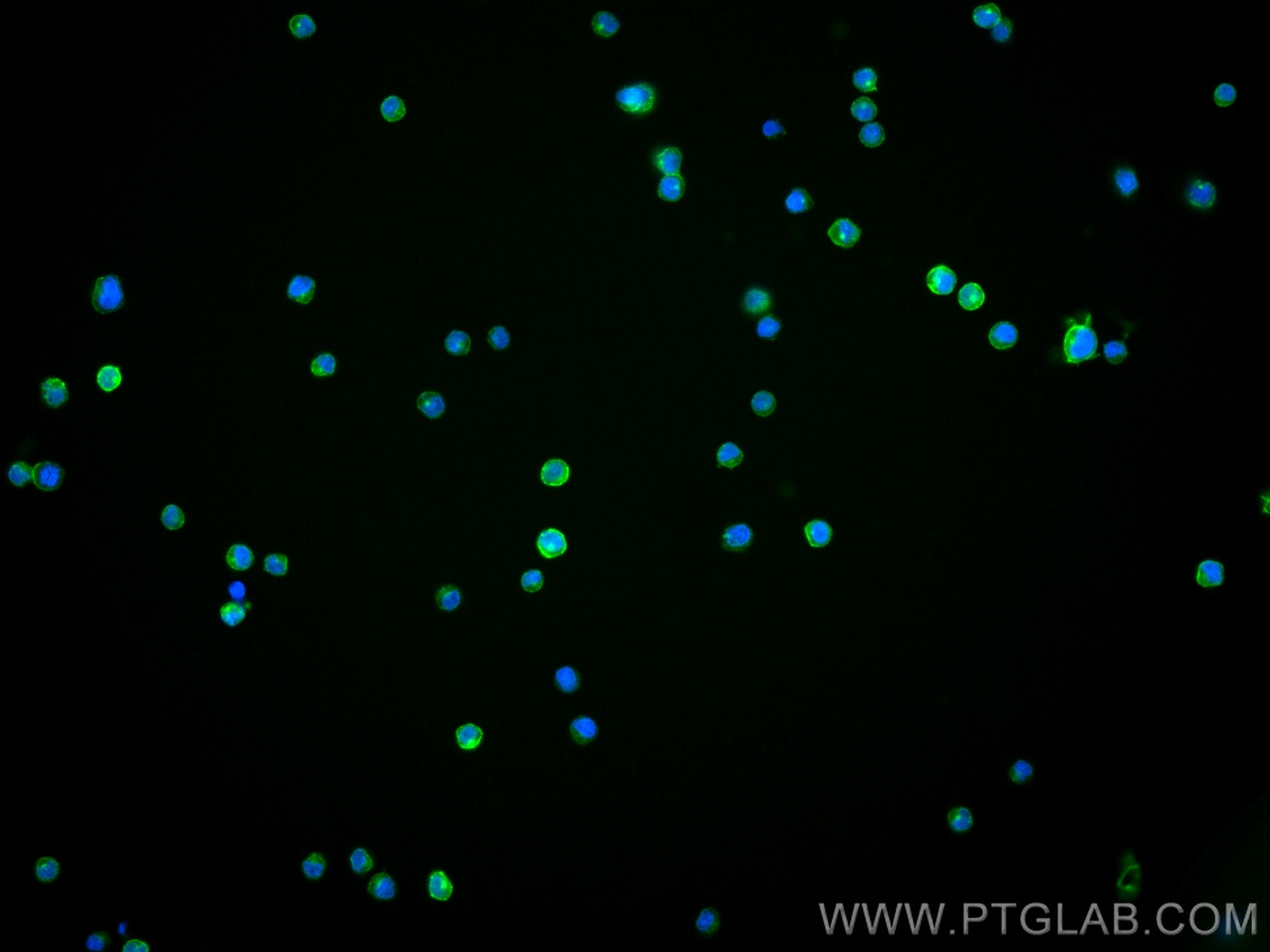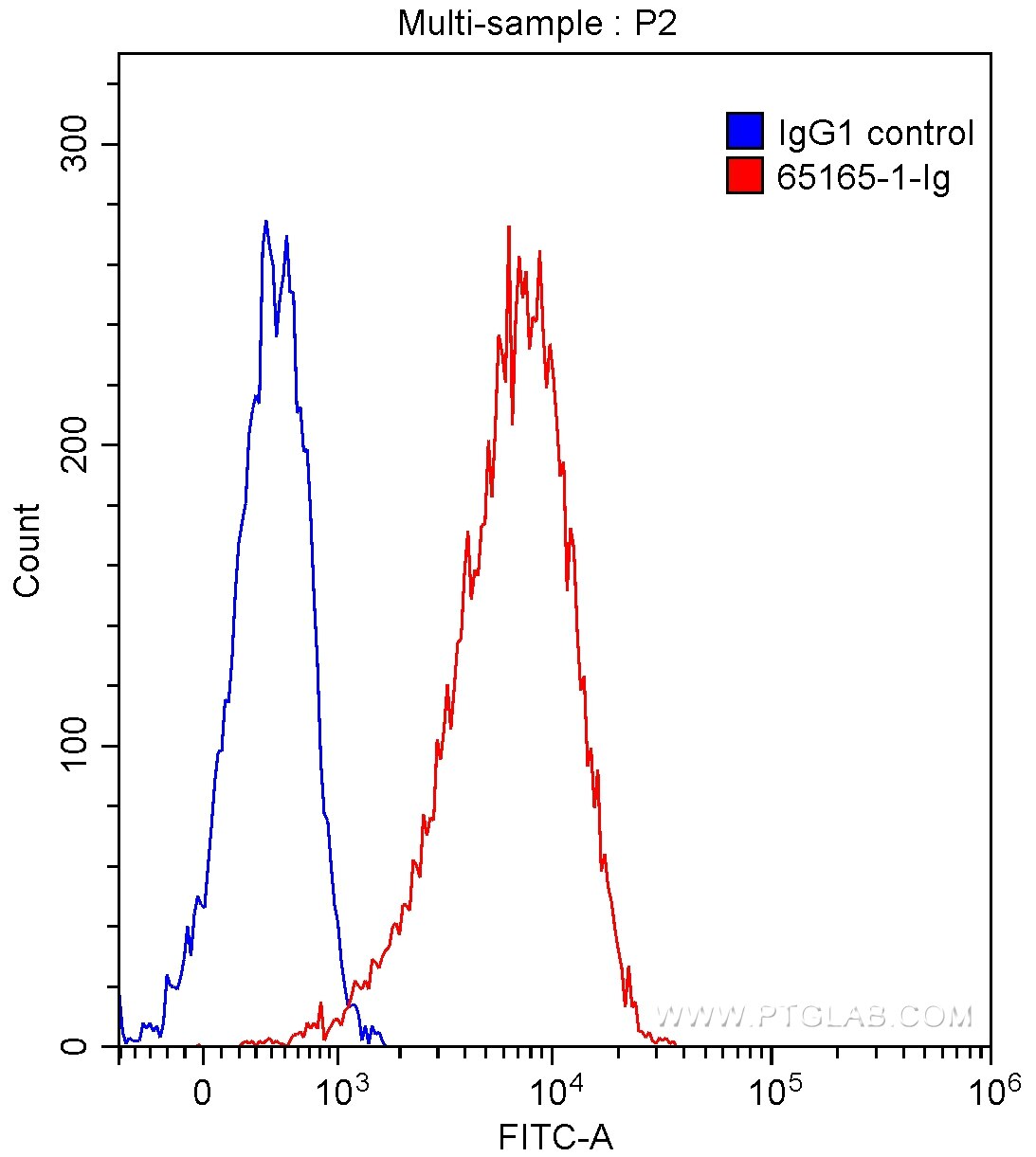CD86 Monoklonaler Antikörper
CD86 Monoklonal Antikörper für FC, IF
Wirt / Isotyp
Maus / IgG1, kappa
Getestete Reaktivität
human
Anwendung
IF, FC
Konjugation
Unkonjugiert
CloneNo.
BU63
Kat-Nr. : 65165-1-Ig
Synonyme
Galerie der Validierungsdaten
Geprüfte Anwendungen
| Erfolgreiche Detektion in IF | Raji-Zellen |
| Erfolgreiche Detektion in FC | Daudi-Zellen |
Empfohlene Verdünnung
| Anwendung | Verdünnung |
|---|---|
| Immunfluoreszenz (IF) | IF : 1:500-1:2000 |
| This reagent has been tested for flow cytometric analysis. It is recommended that this reagent should be titrated in each testing system to obtain optimal results. | |
| Sample-dependent, check data in validation data gallery | |
Produktinformation
65165-1-Ig bindet in IF, FC CD86 und zeigt Reaktivität mit human
| Getestete Reaktivität | human |
| Wirt / Isotyp | Maus / IgG1, kappa |
| Klonalität | Monoklonal |
| Typ | Antikörper |
| Immunogen | B-lymphoblastoide Zelllinie ARH 77 |
| Vollständiger Name | CD86 molecule |
| Berechnetes Molekulargewicht | 329 aa, 38 kDa |
| GenBank-Zugangsnummer | BC040261 |
| Gene symbol | CD86 |
| Gene ID (NCBI) | 942 |
| Konjugation | Unkonjugiert |
| Form | Liquid |
| Reinigungsmethode | Protein-A-Reinigung |
| Lagerungspuffer | PBS mit 0,1% Natriumazid. |
| Lagerungsbedingungen | Store at 2-8°C. Stable for one year after shipment. |
Hintergrundinformationen
CD86 (also known as B7.2) is a costimulatory molecule belonging to the immunoglobulin superfamily. Primarily expressed on antigen-presenting cells (APCs), including B cells, dendritic cells, and macrophages, CD86 is the ligand for two proteins at the cell surface of T cells, CD28 antigen and cytotoxic T-lymphocyte-associated protein 4. Binding of CD86 with CD28 antigen is a costimulatory signal for activation of the T-cell. Binding of CD86 with cytotoxic T-lymphocyte-associated protein 4 negatively regulates T-cell activation and diminishes the immune response.
Protokolle
| Produktspezifische Protokolle | |
|---|---|
| IF protocol for CD86 antibody 65165-1-Ig | Protokoll herunterladen |
| FC protocol for CD86 antibody 65165-1-Ig | Protokoll herunterladen |
| Standard-Protokolle | |
|---|---|
| Klicken Sie hier, um unsere Standardprotokolle anzuzeigen |



